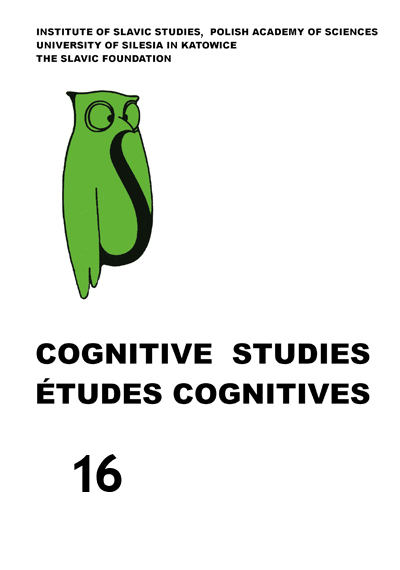THE USE OF THE LEXICAL EXPONENTS OF HYPOTHETICAL MODALITY IN POLISH AND
LITHUANIAN
THE USE OF THE LEXICAL EXPONENTS OF HYPOTHETICAL MODALITY IN POLISH AND
LITHUANIAN
Author(s): Danuta RoszkoSubject(s): Morphology, Lexis, Semantics, Western Slavic Languages, Baltic Languages
Published by: Instytut Slawistyki Polskiej Akademii Nauk
Keywords: Polish; Lithuanian; hypothetical modality; parallel corpora;
Summary/Abstract: In this article the author focuses on the issue of hypothetical modalitya in Polish and Lithuanian. A list of the basic exponents of hypothetical modality in both languages is presented. However, the focus is mainly placed on the lexical exponents. On the basis of one of the six groups, which describes a high degree of probability (H5), the differences between the use of the lexical exponents in both languages are examined. In the study, multilingual corpora resources, including The Polish-Lithuanian parallel corpus Clarin-PL., are utilized.
Journal: Cognitive Studies | Études cognitives
- Issue Year: 2016
- Issue No: 16
- Page Range: 45-56
- Page Count: 12
- Language: English

